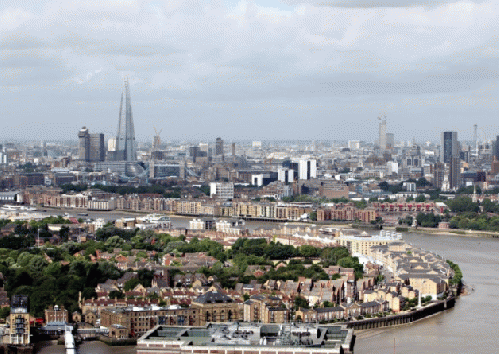England is two countries. One is dominated by London, the other remains in its shadow. When I first arrived from Australia, it seemed no one went north of Watford and those who had emigrated from the north worked hard to change their accents and obscure their origins and learn the mannerisms and codes of the southern comfortable classes. Some would mock the life they had left behind. They were changing classes, or so they thought.
When the Daily Mirror sent me to report from the north in the 1960s, my colleagues in London had fun with my naive antipodean banishment to their equivalent of Siberia. True, it was the worst winter for 200 years and I had never worn a scarf or owned a coat. Try to imagine what it is like in darkest Leeds and Hull, they warned.
This was a time when working people in England were said to be "speaking out," even "taking over." Realist films were being made, and accents that had not been welcome in the broadcast media and sections of the entertainment business were now apparently in demand, though often as caricatures.
During that first drive north, when I stopped for petrol, I failed to understand what the man said; within weeks, what the people were seemed perfectly clear. They were another nation with a different history, different loyalties, different humor, even different values. At the heart of this was the politics of class. Crossing the Pennines, the Empire dropped away. The imperial passions of the south barely flickered. On Merseyside and Tyneside, apart from the usual notables, no one gave a damn for royalty. There was the all-for-one-and-one-for-all of a wagons-drawn working class society -- unless, as was made painfully clear in later years, you happened to be black or brown. That solidarity was, for me, the story, as if it was the missing chapter in England's political heritage, a people's history of modern times, suppressed by Thatcher and Blair and still feared by their echoes.
I had already glimpsed the power of this solidarity in the place where my parents had grown up and I knew as a boy: the mining region of the Hunter Valley in New South Wales. Here, whole collieries had shipped out from Yorkshire, Tyneside and Durham. "Watch them; they're communists," I heard someone say. They were fighters for working class decency: proper pay, safety and solidarity. The Welsh were the same. They brought with them the pain and suffering and anger of those who had industrialized the world and gained little but the resilient comfort of each other.
The Mirror published my reports of working lives: miners working in three foot shafts, steelworkers in unimaginable heat. I would find a street, virtually any street, and knock on doors. What intrigued me then was that such human warmth and forbearance could survive the treadmill of northern cities. Moreover, the great radical tradition of resistance in the north -- from the cotton workers of the 19th century to the Great Miners' Strike of 1984-5 -- always threatened the game known in London as "the consensus."
This was the nod-and-wink arrangement between Labour and Tory governments and the five percent who owned half the wealth of all of the United Kingdom. The Labour MP turned media man, Brian Walden, described how it worked. "The two front benches [in Parliament] liked each other and disliked their back benches," he wrote. "We were children of the famous consensus ... turning the opposition into government made little difference, for we believed much the same things."
My second film for television, made for Granada TV in Manchester, was called Conversations with a Working Man. It was the story of Jack Walker, a dyehouse worker from Keighley in Yorkshire whose job was monotonous, filthy and injurious to his health, yet he derived a pride from "doing it well." Jack believed passionately that working people should stand together. That an articulate trade unionist was allowed to express his views without intrusion by those who often claimed to speak for him, and to worry out loud about the stitched-up democracy in Westminster, was beyond the pale. The term "working class," I was told, had "political implications" and would not be acceptable to the Independent Television Authority. It would have to be changed to "working heritage." Then there was the problem of the term "the people." This was a "Marxist expression" and also had to go. And what was this "consensus"? Surely, Britain had a vibrant two-party system.
When I read recently that 600,000 Greater Manchester residents were "experiencing the effects of extreme poverty" and that 1.6 million were slipping into penury, I was reminded how the political consensus was unchanged. Now led by the southern squirearchy of David Cameron, George Osborne and their fellow Etonians, the only change is the rise of Labour's corporate management class, exemplified by Ed Miliband's support for "austerity" -- the new jargon for imposed poverty.
In Clara Street in Newcastle-upon-Tyne, in the wintry dark of early morning, I walked down the hill with people who worked more than 60 hours a week for a pittance. They described their "gains" as the Health Service. They had seen only one politician in the street, a Liberal who came and put up posters and said something inaudible from his Land Rover and sped away. The Westminster mantra then was "paying our way as a nation" and "productivity." Today, their places of work, and their trade union protection, always tenuous, have gone. "What's wrong," a Clara Street man told me, "is the thing the politicians don't want to talk about any more. It's governments not caring how we live, because we're not part of their country."






